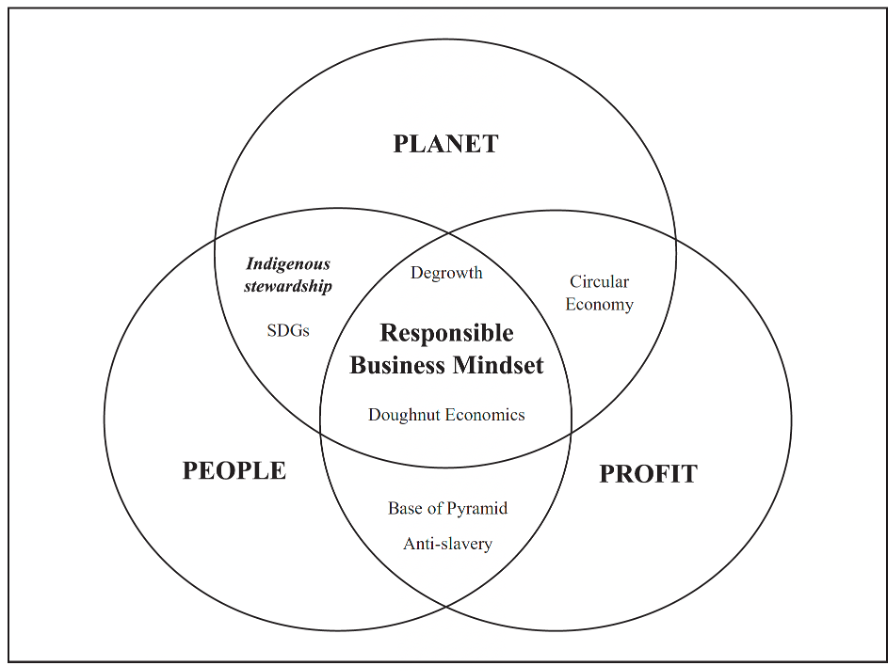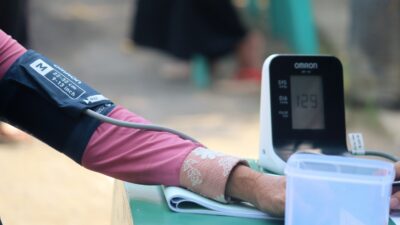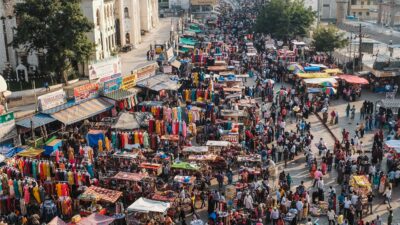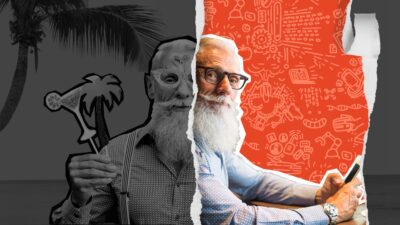Anna Young-Ferris

Black learning matters – appreciating Indigenous wisdom in management education
“Businesses need to act as stewards and not as owners by incorporating Responsible Business Mindset in their every day decision making.”
Master of Commerce student
In March 2021, the Business School at the University of Sydney began teaching Indigenous stewardship in Responsible Business Mindset, a core foundational unit in its Master of Commerce degree. Around 2,000 students take this unit each semester.
Several significant events – the COVID-19 pandemic, the Black Lives Matter protests, the war in the Ukraine, Australia’s extreme bushfires and floods – have moved us not only as members of society but also as management educators. These events, along with our experience in climate change and sustainability in the tertiary education and corporate sectors, were the inspirations for reimagining business education.
How could we ignore these significant forces when helping to prepare our students as the next business leaders for the world they will confront, and hopefully help them to shape it for the better? Drawing from Indigenous ways of knowing and being, we wanted to explore how business in the main could be reframed in terms of itsinterdependent and mutually beneficial relationships with the communities and environments in which it operates.
Tackling privilege in management eduction
Privilege, as defined by Peggy McIntosh in ‘White privilege and male privilege‘, is the ‘invisible package of unearned assets that I can count on cashing in each day.’ We argue that management education at its core continues to facilitate privilege and a narrative of business enshrined in shareholder primacy which promotes individuality, wealth accumulation, and ownership, that only a privileged few benefit from.
We set out to offer a different lens with which to view business – a possible pathway for reimagining the role of business currently prevailing in management education curricula.
By adopting an Indigenous conception of stewardship, we aim to nurture a new Responsible Business Mindset that could perhaps address rather than perpetuate the nature of privilege.
Indigenous stewardship and how can it address privilege
Our approach to appreciating Indigenous wisdom in the curricula was to take the idea of Indigenous stewardship amongst other frameworks as our starting point. Notions of stewardship, as distinct from ownership, invoke mutual responsibility between humans and nature, have long been explicitly recognised in ancient cultures. The Old Testament, for example, accords humanity a ‘special place‘ as stewards to uphold God’s creation for future generations (see Genesis 2.15).

co-creating, and advancing responsible business mindset.
We realise that Indigenous culture is broad and complex. For the purpose of building the new curricula we sought to draw on some common tenants in relation to the notion of stewardship from a number of Indigenous traditions. These include: caretaking and reciprocity; interconnectedness and interdependence; and collectivism and acknowledgment of future generations.
Foremost is the understanding of humanity’s close relationship with the earth, and an appreciation of our dependence on it. This leads to practical and pragmatic guidance around environmental sustainability and reciprocity.
One of the distinctive characteristics of Indigenous stewardship is the focus on humans as caretakers of the land rather than owning and controlling it.
As stewards, a business can be framed with the role of conserver and preserver of nature, taking only what is needed without causing harm to the environment. There is a recognition of an intimate relationship between humanity and nature; humans belong to the land and are indivisible from it. This can be linked, for example, to degrowth and the promotion of a circular economy, designing with a product’s end of life in mind.
In every process there are interconnections and interdependencies. Our students are taught systems thinking. Not harming others, workplace wellbeing, fair treatment of workers, anti-slavery and consideration of community impact are also core teachings.
This is not to say we are advocating the abandonment of profit for some utopian fantasy – rather profit is made for a collective purpose that benefits humanity and the environment now and into the future.
Students imagine a different approach to business controversies
Our students are asked to explore what a Responsible Business Mindset could mean in theory and in practice. One challenging project requires them to rebrand the entirely fictitious ‘Mines R Us’, which has experienced two serious incidents. The background to this case study are the events surrounding the entirely factual events of the 2020 Rio Tinto Juukan Gorge incident, and the 2015 Samarco (BHP Billiton and Vale joint venture) dam collapse.
The students that achieved the highest grades showed they understood that adopting Indigenous stewardship meant the business could no longer solely focus on profitability but is responsible for improving outcomes for a wider set of stakeholders including the environment. The best responses also showed they were aware of the economic pressures and tensions involved.
Teaching respectfully
Introducing the notion of Indigenous stewardship into the Business School’s teaching program poses a challenge for non-Indigenous staff: how can we as educators respectfully and meaningfully introduce such concepts with a sense of appreciation rather than appropriation? The exercise of introducing a new concept into the curricula has brought about a critical self-reflection of our own privilege and how we can use our positions of privilege to transform the business mindset.
We are now more actively working with Indigenous academics, Indigenous business leaders and Indigenous advocacy centres (e.g. National Centre for Cultural Competence) to ensure we teachers are culturally competent, that the concepts are appreciated fittingly in the curricula, and a true sense of Indigenous ‘voice’ is enshrined.
According to student feedback, 90% of students strongly agreed/agreed that the concept of Indigenous stewardship, along with learning how to incorporate the Sustainable Development Goals (SDGs), helped them develop a Responsible Business Mindset. Will these ideas hold as they move into positions in business and their wider communities? We intend to check on that too.
| Central tenets | Definition |
|---|---|
| Caretaking and reciprocity | A willingness to act as stewards or guardians, a commitment to preserve and only take what is needed without harm. |
| Interconnectedness and interdependence | Recognition of an intimate and ‘cosmic’ relationship between people and nature; humans belong to the land and are indivisible from it. |
| Collectivism and acknowledgement of future generations | Sharing of resources for collective need and communal benefit, now and in the future. |
This article is drawn from the following co-authored journal publication by Anna Young-Ferris and Ranjit Voola (2023) “Disrupting Privilege as Power and Control: Re-Imagining Business and the Appreciation of Indigenous Stewardship in Management Education Curricula”.
Image: Will Turner
Dr Anna Young-Ferris is a Senior Lecturer of Accounting, Governance and Regulation at the University of Sydney Business School at the University of Sydney Business School. One of her scholarly research interests lies in transforming the business education narrative from one of Shareholder Primacy to a more Responsible Business Mindset.
Share
We believe in open and honest access to knowledge. We use a Creative Commons Attribution NoDerivatives licence for our articles and podcasts, so you can republish them for free, online or in print.







